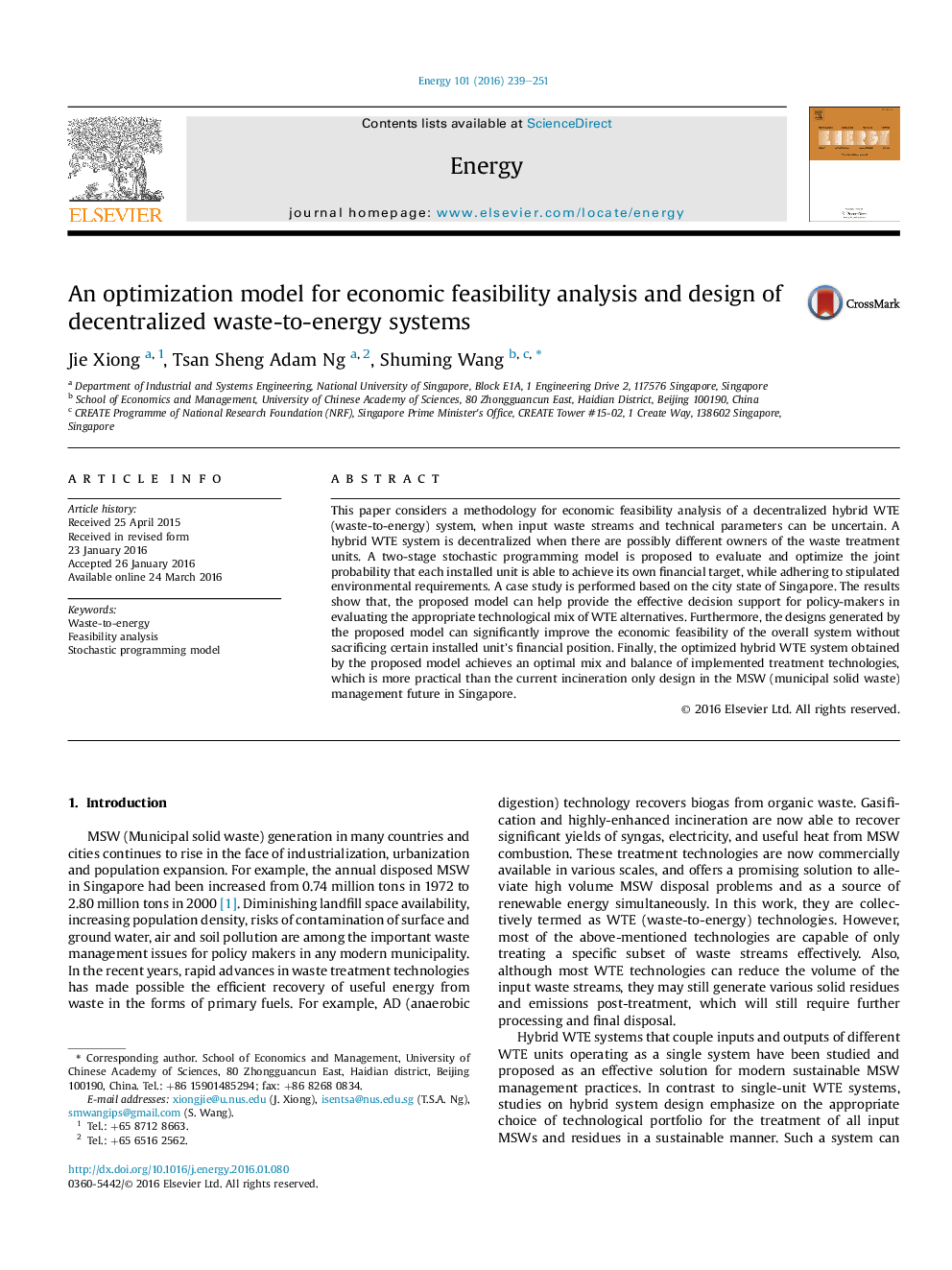| Article ID | Journal | Published Year | Pages | File Type |
|---|---|---|---|---|
| 1731027 | Energy | 2016 | 13 Pages |
•The joint success probability measure is applied in the waste-to energy system design.•The optimized probability design is robust to variations in the electricity price.•The optimized probability design improves economic feasibility at the expense of expected total profit.•The optimized probability design outperforms traditional designs for most electricity price projections.
This paper considers a methodology for economic feasibility analysis of a decentralized hybrid WTE (waste-to-energy) system, when input waste streams and technical parameters can be uncertain. A hybrid WTE system is decentralized when there are possibly different owners of the waste treatment units. A two-stage stochastic programming model is proposed to evaluate and optimize the joint probability that each installed unit is able to achieve its own financial target, while adhering to stipulated environmental requirements. A case study is performed based on the city state of Singapore. The results show that, the proposed model can help provide the effective decision support for policy-makers in evaluating the appropriate technological mix of WTE alternatives. Furthermore, the designs generated by the proposed model can significantly improve the economic feasibility of the overall system without sacrificing certain installed unit's financial position. Finally, the optimized hybrid WTE system obtained by the proposed model achieves an optimal mix and balance of implemented treatment technologies, which is more practical than the current incineration only design in the MSW (municipal solid waste) management future in Singapore.
